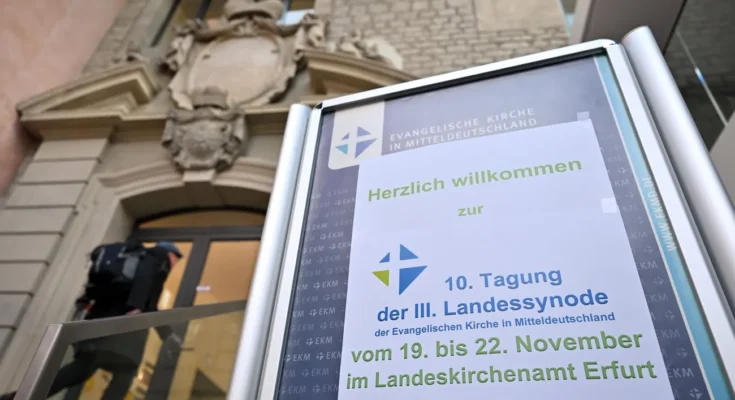The Central German Evangelical Church (EKM) is planning for the first time a smaller double budget for the next two years. The financial plan, presented on Thursday at a state synod meeting in Erfurt, provides a total of around 431 million euros for church tasks over the next two years. This amount is reduced by around 15 million euros compared to the previous double budget and equates to a decrease of around 3.4 percent, EKM announced.
The reason for the initial reduction in the planned amount was a drastic reduction in church taxes of around eight percent, he said. Until now, this could always be compensated for by increasing the income of the remaining members. The number of EKM church members has been steadily declining over the years: the church estimates it will still have around 500,000 members in 2030. At the beginning of the year, there were around 600,000 members, mainly in Thuringia and Saxony-Anhalt as well as in parts of Saxony and Brandenburg.
Concerns about the social future in Saxony-Anhalt and Thuringia
In 2026, the church will reach a “nominal tax tipping point,” according to EKM finance department head Barbara Füten. “We still have the financial opportunity to start the planned changes. But forecasts show that we need to do this quickly.” At the start of the year, the EKM announced it wanted to further reduce the number of church districts and church district offices as part of structural reforms.
There will be real change, said the President of the State Church Office, Jan Lemke. Given the decreasing number of members, decreasing resources and increasing legislative requirements, EKM is no longer able to finance all activities and services. However, it remains controversial where exactly the “waiver should occur”.
Chairman of Diakonie Mitteldeutschland, Christoph Stolte, spoke about the increasingly difficult environment for social service providers. This applies not only in the context of the announcement of cuts to social benefits in the state budget, but also in the context of the possible further strengthening of the AfD – for example in the upcoming state elections in Saxony-Anhalt. “We expect the dismantling of social infrastructure. We are concerned about the social future in the federal state of Saxony-Anhalt and Thuringia», said Stolte.
© dpa-infocom, dpa:251120-930-317316/1



